All Available Episode
All Season 14 Episode

1. Nagoya: Exploring with Insiders
The city of Nagoya is the capital of Aichi Prefecture and the hub of Japan's third largest metropolitan region. Located midway between Tokyo and Osaka, it is not just a major economic center, it also boasts a rich history and a vibrant contemporary culture. On this episode of Journeys in Japan, we explore Nagoya through the eyes of two long-time residents: Elisabeth "Elly" Llopis from Spain and Lena Yamaguchi from Germany. Elly and Lena are very enthusiastic about their adopted hometown, and they introduce some of the people, areas and foods that make Nagoya so special for them.
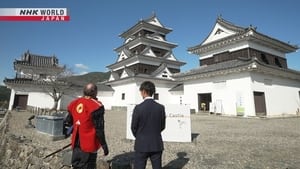
2. Ozu: Castle Town Looking to the Future
Ozu lies in the heart of Ehime Prefecture surrounded by unspoiled forested mountains. Ozu Castle stands in the center of the old town, overlooking the Hijikawa River in a district of traditional residences and other historical buildings. This time on Journeys in Japan, American actor Charles Glover visits Ozu and discovers that it is possible to stay the night inside the castle donjon (main keep) — the only place in Japan where this is possible.
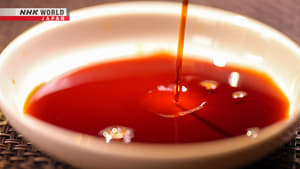
3. Kyushu: On the Trail of Shoyu
Shoyu, or soy sauce, is a condiment at the heart of Japanese cuisine. In Kyushu it evolved into an array of flavors and aromas with locals pairing different types according to the dish. As you move south, shoyu tends to become sweeter. In this journey, we travel 350 kilometers, from north to south, to discover the depth of shoyu.

4. Yasugi: Discoveries Along the Iron Road
Jonathan Senior discovers Japan's iron history in Yasugi, a transport hub from long ago. He learns about the old clay tatara furnaces for producing steel blooms and visits an impressive castle ruin. His trip also takes him to artisan studios for crafting swords, incense and iron candle stands.

5. Matsue: The World of Wagashi
Matsue, in Shimane Prefecture, is renowned as a center for wagashi (traditional Japanese sweets). Around the 18th century, more than 100 kinds of confections were created there, elevating the city as one of Japan's most famous centers for wagashi, alongside Kyoto and Kanazawa. To this day, this culture remains an important part of daily life, and for many people it is customary to enjoy these confections as a snack with tea each day in the mid-morning and mid-afternoon. This culture was introduced to Matsue some 300 years ago along with the tea ceremony by the feudal lord of the Matsue domain, Matsudaira Harusato―who is also known as Lord Fumai. Many of the wagashi treats developed in the city during his life are still favorites with the local people. On this episode of Journeys in Japan, American artist Brandon Chin explores the world of wagashi in Matsue, meeting local artisans who are still carrying on the tradition.
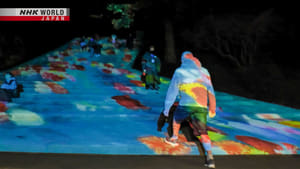
6. Kochi: Into the Luminous Darkness
John Moore travels into the darkness and light of Kochi Prefecture, taking in paintings by lantern and night fishing by flickering lights.

7. Winter Along the Mogami River
The Mogami River is one of the most important waterways in northern Japan. It runs for 229 kilometers through Yamagata Prefecture, with around 80% of the prefecture's population living along its basin. From the 17th century, the river became a major transportation route, carrying people and cargo such as rice and safflower down to the coast, and from there as far as Kyoto and Osaka Prefecture. To this day, many towns along the river retain traces of their historic streetscapes and culture. In this episode, Catrina Sugita from Switzerland visits a community close to the Mogami River. She meets people who are keeping alive local traditions for surviving through the harsh, snowbound winter months. And she discovers the charm and bounty of this waterway known to the locals simply as their "Mother River."
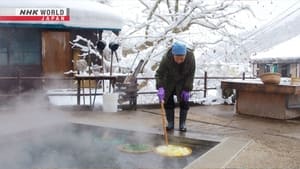
8. Live Long, Live Well in Northern Nagano
Nagano Prefecture, surrounded by beautiful nature, has some of the longest life expectancies in all of Japan. What's behind this? Daniel Moore, an American tour guide living in Nagano, explores his adopted turf to discover the secrets to longevity in one of the country's snowiest regions.

9. Akita, Yamagata, Niigata: The Textiles and Traditions of Winter
Akita, Yamagata and Niigata prefectures are known for their bitterly cold winter weather, with very heavy snowfall. In the old days, the people living in these areas developed warm textiles to help them survive the harsh conditions. They wove fabrics that incorporated fluffy fibers from wild plants or the down of wildfowl. And they developed unique quilting techniques to make their cotton clothes thicker and more robust. They also took advantage of the snow to bleach their fabrics. On this episode of Journeys in Japan, Sheila Cliffe explores the textiles and clothing from Japan's "Snow Country."

10. Sapporo: Ski Mountaineering Tradition
In Hokkaido Prefecture, the sport of ski mountaineering has a long history. Making your way up into the mountains is possible when you have skis. Climbing through the deep snow requires skill, experience and thorough preparation. But the ascent is fun and heading down is even more so. In Japan, the first place where ski mountaineering began was the Academic Alpine Club of Hokkaido, which is part of Hokkaido University. The students here have been skiing for over 100 years. Cveto Podlogar is a licensed international mountain guide from Slovenia. On this episode of Journeys in Japan, Cveto heads out into the mountains with the Alpine Club for a training session, to get a taste of their ski mountaineering tradition.
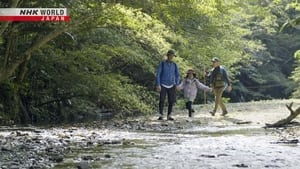
11. Rambling Around Secluded Yanbaru
Yanbaru is an area in the north of Okinawa Prefecture's main island. Covered by subtropical evergreen forest, it is home to a diverse range of native species and a unique ecosystem. In 2021, it was listed as a UNESCO Natural World Heritage site. In this journey, a father-daughter pair visits villages scattered across Yanbaru and meet locals who share a strong bond with their land.

12. Onomichi: Vistas, Cats and Steep Hillsides
Onomichi lies on the coast of Hiroshima Prefecture, overlooking the tranquil Seto Inland Sea. Because there is very little flat land in the town, many of residential areas are built on steep hillsides. The town also boasts beautiful views of the sea and the nearby islands. Drawn by Onomichi's mild climate and old-fashioned atmosphere, a growing number of younger people are moving there from other parts of Japan. The town also attracts many visitors, both from Japan and around the world. On this episode of Journeys in Japan, US actor Bruce Taylor explores the town's labyrinthine narrow streets, discovering an area that is known for its friendly cats and meeting local people who are helping to revitalize the area.

13. Tobishima Kaido: Taking It Slow on Golden Isles
The Tobishima Kaido is a network of bridges linking seven Seto Inland Sea islands. The route starts in Shimo-kamagari near Kure in Hiroshima Prefecture and extends to Okamura in Ehime Prefecture. Osakishimo-jima's Mitarai district prospered as a port of call for Kitamaebune merchant ships, and retains the townscape from the Edo period. The island is also famous for its citrus farming, which dates back over 100 years. Britain Tom Miyagawa Coulton, who lives in Osakishimo-jima, takes us around the islands steeped in history.
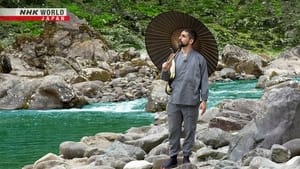
14. With Isabella Bird — Part 2: On the Road to Tsugawa
British explorer and writer Isabella Bird arrived in Japan in 1878, a mere 10 years after the country opened its doors to the West. Accompanied by just one young man who served as both her interpreter and attendant, she traveled deep into the hinterland. Unbeaten Tracks in Japan is her highly praised travelogue of that journey. It is a valuable record written from the perspective of a devout Christian endowed with critical thinking, which smashed the fairytale image of Japan that had spread in Western countries. On this episode of Journeys in Japan, US writer Benjamin Boas traces Bird's footsteps, looking for vestiges of the Japan of 150 years ago. Starting from Kinugawa Onsen, he makes his way to the Aizu region and then to the town of Tsugawa, in Niigata Prefecture.

15. On the Sugar Road from Nagasaki to Saga
The Nagasaki Kaido Road connects the port of Nagasaki Prefecture, the only point open to overseas trade during Japan's period of isolation, with Kokura in Fukuoka Prefecture. It is known as the Sugar Road for the many confections inspired by mainland Asia and Europe that spread along it. Aliza Ahmed Khan, who is from Pakistan, explores this rich world.

16. Nibutani the Ainu, Living with Kamuy
The Ainu people are the indigenous people of Hokkaido Prefecture, Japan's northernmost main island. They developed their own distinct language, history and culture, which were quite different from Japanese, and also lived in northern Honshu, Sakhalin and the Kuril islands. The Ainu people hunted and foraged for edible wild plants, coexisting with the natural environment. They produced powerful, beautiful folk art and craftworks, and they practiced many seasonal rituals to give thanks for the blessings of nature. On this episode of Journeys in Japan, US filmmaker Martin visits Nibutani, an area in Hokkaido with a strong connection to the Ainu people, to discover how they have managed to maintain their culture, handicrafts and beliefs to this day.
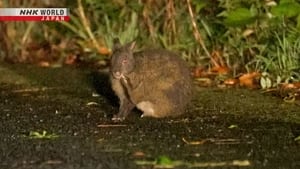
17. The Wild Life in One-of-a-Kind Amami
Amami Oshima Islands, designated as a Natural World Heritage site in 2021, is home to rich biodiversity, including many endemic species. For instance, the Amami rabbit is a living remnant of ancient hares, found only on Amami Oshima and Tokunoshima islands. In this episode of Journeys in Japan, actor Michael Keida heads deep into the forest in search of the subtropical island's rare plant and wildlife. And he meets people who share their knowledge of the forests and sea.
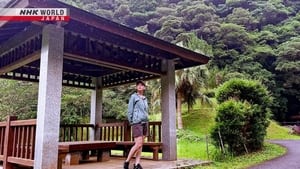
18. Amami Oshima: Beauty in the Rain
Amami Oshima Islands in Kagoshima Prefecture receives one of the largest amounts of rain in Japan. Its rainy season, which runs from May through June, in particular, provides enough water to sustain its lush nature, including rare species of plants and animals, all year round. In this episode of Journeys in Japan, outdoor writer from Sweden Janni Olsson enjoys Amami's rainy season as she engages in activities not available elsewhere and learns about the island's culture.
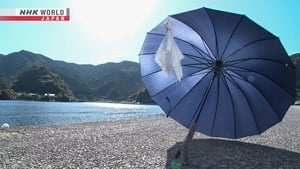
19. Owase: City of Abundant Rain
The city of Owase, in Mie Prefecture, is known as one of the rainiest places in Japan and the people living there have developed their own culture and customs relating to this distinct climate. Stephen Carter comes from New Mexico, an area of southwest USA that is known for its desert climate. On this episode of Journeys in Japan, he visits Owase to experience firsthand how the city has coped with the intense precipitation. On a section of the ancient Kumano Kodo pilgrimage trail, he observes how it was laid out to withstand the torrential downpours. And in a small fishing village, he discovers how the rain and the mountains create fertile fishing grounds. He also takes a cruise along the coast to view a remarkable rock formation.

20. Discovering the Wonders of Iya Valley
Deep in the mountains of Shikoku lies Iya, which is home to a few small settlements. The steep, narrow and misty valley is the stuff of lore. In the 12th century it was a haven for fugitive Heike clan warriors who easily slipped away in the rugged terrain. Over the years, the community has seen its population shrink and age. But a decade ago, Iya became a popular destination for overseas visitors. We visit Iya to find out why and search for hints for regional revitalization.
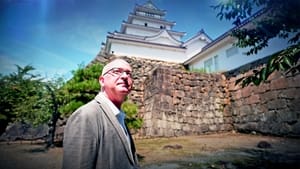
21. Tsuruga Castle, Where the Past Meets the Present
Tsuruga Castle in the city of Aizuwakamatsu (Fukushima Prefecture) played a decisive role in Japan's transition from the feudal samurai era to a modern society. This time on Journeys in Japan, architect James Lambiasi visits the castle and other remarkable sites, meeting local people for whom Aizu's history still remains alive in their hearts.

22. Gujo-Hachiman: Dancing the Night Away
The Gujo Odori, one of Japan's largest Bon dances, is a spectacle with the scores of revelers, as well as the live festival music and clacking geta wooden clogs. For more than 400 years, it has been held for 30 nights from July to September in Gujo-Hachiman, a village located deep in the mountains of Gifu Prefecture. The main event is the all-night dance for four days starting on August 13. French actor Robin Barde explores the deep culture of the festival and dances the night away.
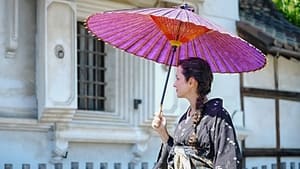
23. With Isabella Bird — Part 3: On the Road to Yamagata
British explorer and writer Isabella Bird arrived in Japan in 1878, a mere 10 years after the country opened its doors to the West. Accompanied by just one young man who served as both interpreter and attendant, she traveled deep into the hinterland. Unbeaten Tracks in Japan is her highly praised travelogue of that journey. It is a valuable record written from the perspective of a devout Christian endowed with critical thinking, which smashed the fairytale image of Japan that had spread in Western countries. In this episode, actor Akino Roza traces Isabella's footsteps in search of vestiges of the past — and also to make new discoveries. Starting from the city of Niigata, she travels along the old Jusan-toge route to the Yamagata Basin.
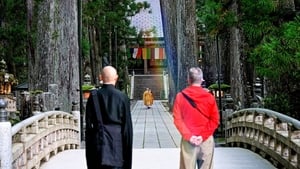
24. Koyasan: In Pursuit of Enlightenment
Koyasan, in the mountains of Wakayama Prefecture, is a sacred site of Shingon Buddhism. It was founded by the visionary monk, Kukai, about 1,200 years ago. Pilgrims and tourists alike stay in shukubo temple lodgings, some of which even feature luxury rooms. Visitors enjoy shojin vegetarian cuisine, meditation sessions and walks through the forests, as well as a famous cemetery. On this journey, British photographer Alfie Goodrich explores the tangible, and intangible, treasures of mysterious Koyasan.

25. From Ise to the Source of the Sacred River
The Miyagawa River originates in the pristine heights of Mount Odaigahara, in the center of the Kii Peninsula, and flows down to Ise Bay. Because its lower reaches run past Ise Jingu (the Grand Shrine of Ise), the river is also often known as the "River of the Gods." The Miyagawa is also renowned for its water quality, which is among the clearest in the country. On this episode of Journeys in Japan, Peter Skov hikes through the spectacular Osugidani valley, before arriving at the source of this sacred waterway.

26. The Soaring Dragons of Chichibu
Chichibu in Saitama Prefecture is a charming, rustic spot not far from Tokyo. It is known for its hundreds of annual festivals. These include the Chichibu Night Festival, as well as one that features rockets. In the Yoshida Ryusei Festival, which takes place in October, locals handcraft rockets that are launched high in the air and release colorful decorations or firework clusters on the way down. We meet the people who are passing down this special tradition.
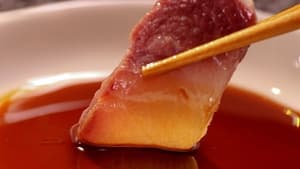
27. Kyushu: On the Shoyu Trail Nagasaki – Kumamoto – Miyazaki
Soy sauce, or shoyu, is one of the essential seasonings that underpin Japanese cuisine. In Kyushu (southwestern Japan), various types of soy sauce have been developed to complement different dishes. From one region to the next, each sauce has its own tradition and use. This has led to the creation of numerous sauces across the region, including new kinds of shoyu featuring a range of ingredients.

28. Handa: Savoring a Canal City's Delights
Handa City, in Aichi Prefecture, is known for its brewing industry and festivals with towering floats. Jennifer Julien, a wine promoter based in Japan, delights in the city's sake and sushi, as well as its Handa Dashi Float Festival. It's a spectacle of thirty-one floats that come together once every five years.

29. Yakushima Awakenings
Yakushima, off Kagoshima Prefecture in Kyushu, is a magical island of primeval forest, rare micro-climate and pristine nature. It is also the first place in Japan to be recognized as a UNESCO World Natural Heritage Site. British plant-hunter, Ernest Henry Wilson, explored Yakushima in the early 20th century, researching and photographing its ancient Yakusugi trees. Photographer Alfie Goodrich travels to the island and becomes a conduit for the famous plant-hunter Wilson...
